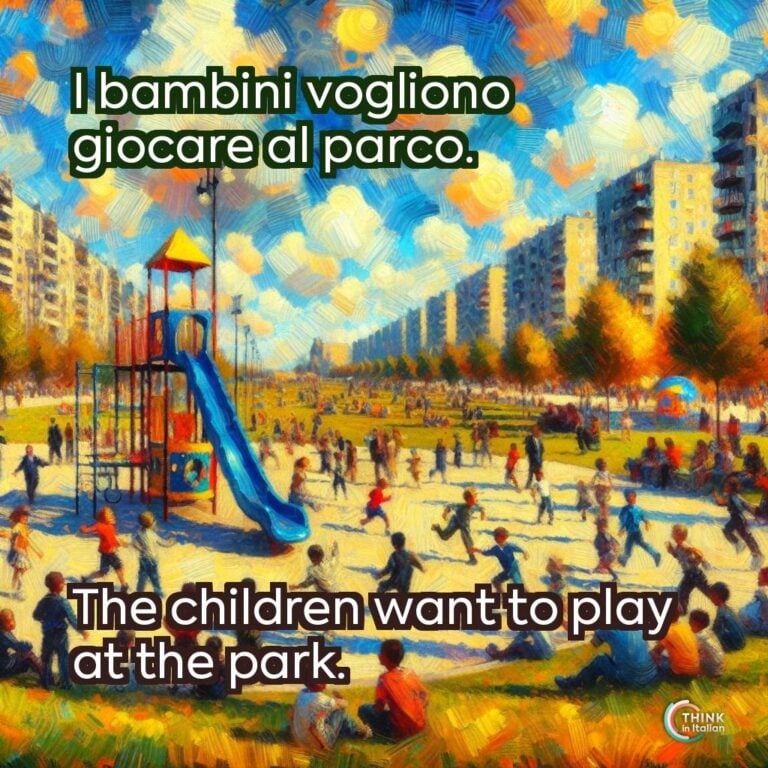How to say want in Italian: volere
The English verb “want” translates into the Italian verb volere.
Volere is an irregular verb. In other words, it doesn’t follow the same pattern as other second conjugation verbs.
Volere is also a modal verb. Modal verbs are also called helper verbs because their function is to “help” another verb, expressing intention, possibility, need, or ability.
If a verb follows volere, it is always in the infinitive tense.
Volere has three main meanings (which are all compatible with the use of the verb “to want” in English):
- It expresses the desire to achieve something
- It expresses a strong will
- It expresses the claim of acting on someone else’s will (and it is used for demands)
Volere: Examples
Here are some sentences to see when to use the verb volere.
- To express a desire to achieve something:
Da grande voglio fare l’insegnante.
When I grow up I want to be a teacher.
Marta vuole vincere la gara.
Marta wants to win the race.
- To express a strong will
Angelo vuole smettere di fumare.
Angelo wants to quit smoking.
Non posso andare alla festa perché i miei genitori non vogliono.
I can’t go to the party because my parents don’t want me to go.
- To express demands concerning others
Giorgio vuole i soldi che gli devi.
Giorgio wants the money you owe him.
Gli insegnanti vogliono che gli studenti si impegnino di più.
The teachers want the students to work harder.
Other uses of volere: the conditional tense
The conditional conjugation of volere has a particular meaning which is comparable to the use of “would like” and “wish” in English.
The conjugation of volere in the conditional mood (present tense) is:
| Io | vorrei |
| Tu | vorresti |
| Lui | vorrebbe |
| Noi | vorremmo |
| Voi | vorreste |
| Loro | vorrebbero |
Let’s look at some sentences to see when it’s suitable to use the conditional conjugation of the verb volere:
- To express wishes and desires (especially if difficult or impossible to accomplish):
Vorrei dormire tutto il giorno!
I wish I could sleep all day.
Vorrei imparare a suonare il pianoforte, ma non ho tempo.
I would like to learn to play the piano, but I don’t have time.
- To make polite requests.
Vorrei un caffè, per favore.
I would like a coffee, please.
- To make polite offers and proposals – but in this case, the indicative mood is also acceptable:
Vorresti qualcosa da bere? (conditional mood) / Vuoi qualcosa da bere? (indicative mood)
Would you like something to drink?
Want in Italian: volere
The Italian verb volere is the equivalent of the English verb “want“.
Volere is an irregular modal verb that expresses the desire to achieve something, a strong will, or the claim of acting on someone else‘s will.
In this post, examples of sentences with volere are given to demonstrate its different uses.
The conjugation of volere in the conditional mood (present tense) is also mentioned, as it has a particular meaning which is similar to the English use of “would like“ and “wish“.
It is used to express wishes and desires, make polite requests and offers, or make polite proposals.




